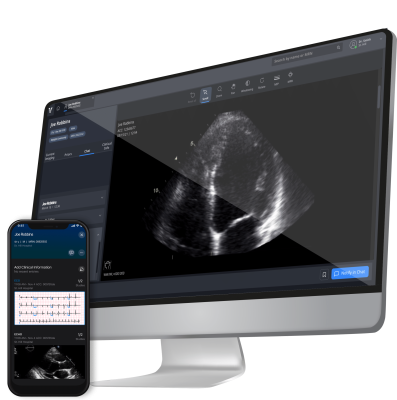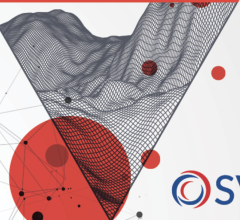
Viz.ai will be announced new clinical data supporting advancements in cardiology care during the American College of Cardiology Scientific Sessions, ACC.24. Image courtesy: VizAI
April 4, 2024 — Viz.ai, a leader in AI-powered disease detection and intelligent care coordination, announced new clinical data supporting advancements in cardiology care. Three studies, to be presented at the American College of Cardiology’s (ACC) Annual Scientific Session & Expo 2024, have shown positive outcomes with real-world impact of Viz.ai in clinical practice for patients with hypertrophic cardiomyopathy (HCM), a commonly inherited heart disease that often goes undetected. The Viz HCM module is the first and only AI algorithm cleared by the FDA for HCM.
“At Viz.ai, we invest in our algorithms to ensure the technology reliably detects suspected conditions, including HCM, and improves patient care and outcomes,” said Molly Madziva Taitt, Ph.D., VP of Global Clinical Affairs at Viz.ai. “We are pleased that the clinical evidence accepted at the ACC shows the Viz HCM module’s consistent performance across different phenotypes and patient backgrounds, demonstrating its potential to be used as an effective, pragmatic method to triage patients for clinical review.”
The first study, titled “Detection of Hypertrophic Cardiomyopathy on Electrocardiogram using Artificial Intelligence”, evaluated the performance of the Viz HCM algorithm across racial backgrounds at Mass General Hospital, Brigham and Women’s Hospital and Salem Hospital. The study found that Viz HCM performance in suspected HCM detection was consistent across various racial backgrounds with a sensitivity of 68.4% and specificity of 99.1%.
“These findings demonstrate that the Viz HCM algorithm can help to identify patients with HCM using easily accessible ECG equipment,” said Carolyn Ho, MD, Medical Director of the Cardiovascular Genetics Center at Brigham and Women’s Hospital and Associate Professor of Medicine at Harvard Medical School. “The Viz HCM performance was consistent across different racial backgrounds, so use is likely to be generalizable to different settings.”
The second study, “Racial and Phenotypic Variations in Detection of Hypertrophic Cardiomyopathy using an Artificial Intelligence-Enabled Electrocardiogram: Real World Experience”, assessed the performance of Viz HCM across specific phenotypes, including obstructive and apical HCM, and various racial backgrounds at Morristown. The retrospective analysis found that across 1,463 patients, the model performed well in Caucasian and African American races with 66.8% and 72.5% sensitivity, respectively, suggesting its potential for early detection. Notably, in patients with apical HCM, the model performed particularly well with 89.3% sensitivity.
“This study further demonstrates the screening capabilities of AI with a common, non-invasive electrocardiogram, and in particular the Viz HCM algorithm, to detect HCM, especially for certain phenotypes such as apical HCM,” said Matthew Martinez, MD, Director of Sports Cardiology and HCM at Atlantic Health System.
The third study, “Probability Score Sorting from an ECG Deep Learning HCM Algorithm: Insights from the Prospective HCM Pilot Trial” evaluated the efficacy of a sorting feature in enhancing positive predictive value (PPV) for disease detection compared to chronological sorting at Mt. Sinai. Results showed that sorting by probability scores increased PPV from 20% to 70% for the top 10 results and from 20% to 80% for the top five results of HCM-suspected cases. This validates the effectiveness of relevance score sorting for prioritizing higher probability HCM-positive patients identified by deep-learning algorithms analyzing ECG data.
“These data suggest that a sorting mechanism using probabilistic model outputs is an effective and pragmatic method to triage patients for clinical review who are deemed to have suspected HCM by deep learning algorithms applied to the electrocardiogram,” said Joshua Lampert, MD, FACC, Assistant Professor of Medicine and Medical Director of Machine Learning for Mount Sinai Fuster Heart Hospital, “We also demonstrated prospectively that well-calibrated model probabilistic outputs reflect the actual likelihood of disease in clinical practice. This information can be valuable for clinicians particularly when it comes to counseling patients, though clinicians should make clinical decisions based on prespecified binary classification thresholds.”
For more information: www.viz.ai


 June 08, 2023
June 08, 2023 

